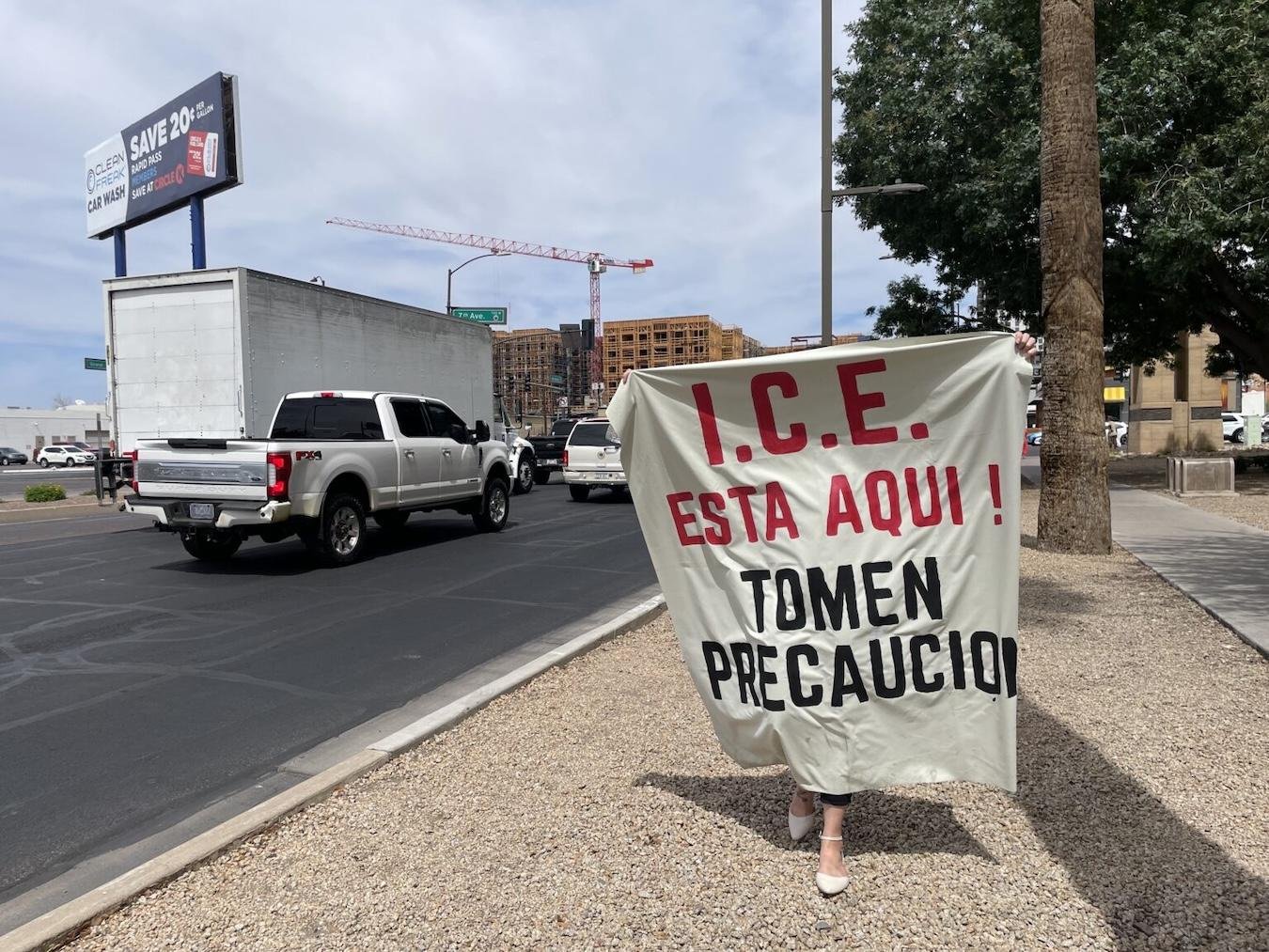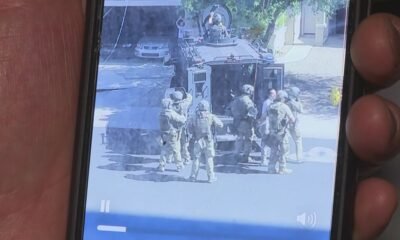border
ICE Resumes Courthouse Arrests in Phoenix with Controversial New Tactics

Immigration agents have intensified operations at courthouses, resuming the practice of arresting individuals attending immigration hearings. This escalation was evident on Wednesday when a mother and her children were detained shortly after leaving court.
Last week, Immigration and Customs Enforcement (ICE) arrested over a dozen individuals in various courthouse locations, including hallways and parking lots. These arrests followed federal prosecutors dismissing numerous immigration cases, rendering the individuals susceptible to deportation.
Similar incidents have emerged nationwide in cities like Seattle, Miami, and Los Angeles. Legal experts suggest that this strategy aims to boost deportation statistics while focusing on a population that is typically easier to apprehend. Those attending scheduled hearings must appear or face potential deportation orders.
The current status of enforcement appears to target recent arrivals. President Donald Trump expanded expedited removal—a policy allowing quick deportation without a court hearing—across the entire country, previously limited to border areas under the Biden administration.
This broader application enables officials to arrest anyone who has lived in the U.S. for less than two years. Reports indicate that many individuals affected by last week’s dismissals fall under this category.
In Phoenix, the two-day court disruption was followed by a brief pause—only to resume with Wednesday’s incident. Immigrant rights advocates reported that federal agents arrested a mother after she left court, leading to dramatic scenes captured on video. The footage shows federal agents escorting her and her child towards a van.
Members of activist group 50501 denounced the situation. One advocate labeled the arrests as “human trafficking,” expressing outrage towards the targeting of individuals who are complying with legal processes.
Beth Strano, executive director of the Borderlands Resource Initiative, noted that ICE has adjusted its tactics, likely in response to pushback from advocates. Last week’s agents utilized courtroom surveillance, while Wednesday’s arrests involved officers from vantage points off-site, minimizing their visibility and stopping vehicles down the road.
Strano emphasized the importance of community oversight and information dissemination regarding rights, stating that an informed community can make better decisions in these circumstances.
Despite advocates distributing literature on rights outside the courthouse last week, they faced new restrictions this week. The property manager compelled protesters to maintain distance from the courthouse entrance, hampering their outreach efforts.
Strano advised that migrants should attend their court hearings despite the risks. Failing to appear can lead to deportation orders without their knowledge. Individuals are encouraged to arrive with legal observers to contact family if arrests occur.
Elected officials have voiced concerns regarding DHS and ICE actions at courthouses. Arizona’s Democratic congressional delegation, including Sens. Ruben Gallego and Mark Kelly, sent a letter to top officials expressing alarm over the arrests targeted at individuals with no criminal records. They contend that these actions undermine safety in the community.
The letter outlines requests for demographic data on those detained, the status of their proceedings, and information on how ICE conducts required fear screenings for detained individuals.

















